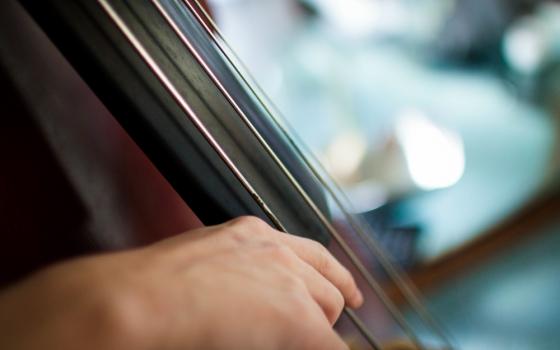After a second rehearsal session of Handel's "Messiah" with chamber orchestra plus choir and soloists, I came away with two resolute thoughts. First, there is no greater honor for a string player than to play the "Messiah." There just isn't. And second, the Son of God is a cello.
The bass soloist had a particularly bold and fully-developed voice that just boomed forth the solos scored for the bass voice. As he sang, images of Michelangelo's artwork in the Sistine Chapel flooded my mind. The bass soloist has the sound I imagine of God the Father's voice as he boomed forth creation and pronounced it all good.
Of all the classical string instruments — violin, viola, violoncello, and string bass — only the cello has the range of pitch and timbre to replicate the sound of the other three. The cello can mimic the sweet sounds of the violin from the upper fingerboard area, can replicate the mature viola through the medium-to-high string fingerings, and can imitate the string bass down to low C. And, of course, the cello can sound like itself. No other classical string instrument has such versatility and flexibility.
The Son of God came to serve all, heal all, inspire all, and save all. He ministered to all in whatever ways people could understand him best, whether that was through a parable, through example, or through a healing. Jesus is flexibility and versatility. Jesus is a cello.
[Nancy Linenkugel is a Sylvania Franciscan sister and chair of the department of Health Services Administration at Xavier University, Cincinnati Ohio.]

